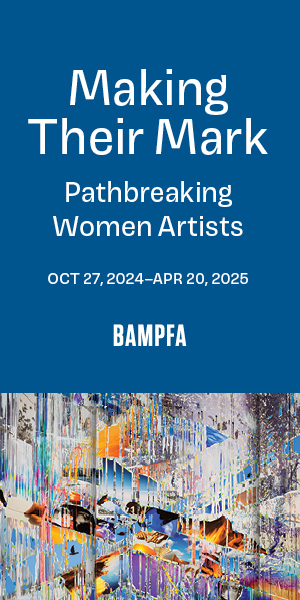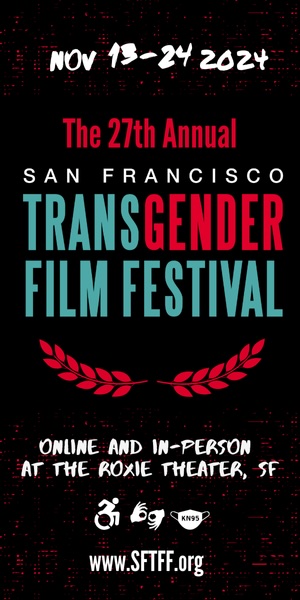There is no through-line to this 2019 Music of Note line-up. Just honest music that runs the gamut of progressive soul, breakbeat mayhem, a couple of sublime DJ mixes, post-punk clean lines pushing doom synth groove, real fierce Afrobeat, psyche-rock from NYC, re-issues that keep two legends in our minds and a couple of poignant albums landing the thunderous voice of resistance.
It was a great year, for music.
Shafiq Husayn, The Loop
The Loop, Shafiq Husayn’s first solo album in a decade, constructs a new template for progressive “spaced-out funk, raw neo-soul, free jazz, and electronic elements” that feels ultramodern, hitting on-time like an eclectic booster shot of optimism. Husayn and his deep-bench community of talent, mostly veterans an up-and-comers from the burgeoning LA jazz/soul/electronic music set, create luxuriant modernity for outliers seeking refuge from the extra-ness happening in the world every day. This updated Soulquarian-hang vibe idealism is one that sees music, Black music, as a means of healing, not selling.
The Loop was not designed for the masses, and that’s OK. It was made for us. More here.
Jamila Woods, LEGACY! LEGACY!
Jamila Woods, the formidable 29-year-old multi-talented artist from Chicago, brandishes scattershot tones and hues that move through hip-hop, neo-soul, house and rock with a funk lean and touches of trip-hop on the commanding LEGACY! LEGACY! Woods’ voice teeters constantly from downhill ease one minute to seething indignation the next. She takes 12 mavericks of culture—poets, musicians, painters and novelists, strong-willed people of color—and focuses on their superhero talents and struggles, and recasts them, first name basis, through the narrative of song. Listen people, glass-cased idealism went out the door in November of 2016. LEGACY! LEGACY! reminds US all, creation of art is the first act of resistance. More here.
Solange, When I Get Home
In true modernistic form, When I Get Home, released at midnight on March 1st (the first day of Women’s History Month), creates a quintessential delivery system where jazz-fusion samples, electro-funk, lucid reggae, and soul ballads—written in 5/4 time signatures—swirl not for a linear sequence. Solange revolts against the antiquated soul album presentation by running 19 songs in 39 minutes, which at times feels like a haunted CD repeatedly skipping, focused around her hometown of Houston. Always my favorite Knowles, she can’t make mainstream moves without some type of indie upstart disruption bubbling underneath…. like a thunderous Alice Coltrane harp run.
Laurel Halo, DJ KICKS
Laurel Halo, the American-born producer, musician, and DJ, has released four dissimilar studio albums since 2012, which move briskly from experimental pop, through minimal techno, to evergreen-ambient textures. Helming the sixty-eighth edition of the DJ-Kicks mix series, Halo expertly shuffles musical microclimates like a card shark elbow greasing a three-card molly hustle. Presenting 29 tracks in 60 minutes (DAMN), she drags friends, unknown artists, and left-field thinkers to walk through this door with her. Like a car mechanic dying to use EVERY tool in the garage, the amalgam captures a specific eagerness: with tempo, dressed in polychromatic tones, throttling past our eyes and ears. Halo, caters the style of the mix to the terrain of the song. Maneuvering through fierce arpeggios, ruff bass lines, space-age micro-house, and machine-like landscapes.
It’s only the blissed-out half time
Joe Armon-Jones, Turn To Clear View
Joe Armon-Jones makes serious music that is far from disposable. His polymorphic mix of dub, hip-hop, R&B, funk, and bass-heavy UK club culture is the amalgamation to what “his folks” are here for. Not some narrow-minded, dusty old head tradition, isolated on a shelf, where others can’t reach it on first listen. His arrangements ARE the galvanized British jazz scene happening now.
Turn To Clear View features those modern glimpses of inventiveness, projecting large room energy, but it’s “Yellow Dandelion,” a five-minute head-nodding swinger of a jam featuring Los Angeles vocalist and producer Georgia Anne Muldrow, acknowledging the UK jazz scene with a co-signing of sorts. Turning in a reserved, but spirited vocal performance where she opens up blows and scats behind the looping heft and swing of a band executing at peak status. Singing in code about how we as humans lack the tolerance for difference, using that flower as a pointed metaphor, Muldrow sounds regal. It’s that combo, a tight and loose oblong moment, that bands yearn for. It’s unconscious. This connectivity between LA and London? Don’t sleep on it. More here.
Brittany Howard, Jaime
Apocalyptic rants of togetherness over space jazz beep fusion landscapes, with Robert Glasper raising those frequencies on keys, clapping back at the “right in your face” racism, still going strong in 2019. The search for connectedness via queer-leaning love songs, emotionally available to everybody who yearns to love or be loved, dipped in that Curtis Mayfield gospel sweet delivery system. Packing the fuck-you presence of her rock group Thunderbitch and the alt-moves of her country adjacent band Bermuda Triangle, Jaime is Brittany Howardʻs most realized musical patchwork to be housed on one project.
These sound palettes, from Prince-informed sheen, Sharon Jones’ gravitational pull, and DʻAngelo mood funk, reach past the retro-soul niceness of Alabama Shakes 2012 Boys & Girls and stretches further out than 2015ʻs Grammy-winning Sound & Color. Fearless in every way, Jaime is that valiant soul record mirroring America. More here.
Patrice Rushen, Remind Me: The Classic Elektra Recordings 1978-1984
“Forget Me Nots”, the advanced in your feelings post-disco, you go your way and I’ll go mine, single from Patrice Rushen, was first thought of as a dud by the Asylum/Elektra label upon release in 1982. While it possessed the holy trinity of deep ASMR soundscapes for its time-optimistic lyrical thoughts sung in hushed tones by Rushen, uncanny slap funk bass excursions by Freddie Washington and that bright, glossy sax solo from Gerald Albright. It shared space with Hall and Oates on celestial black radio, in barbershops and beauty salons alike. A good SIX months before it would become an overground smash and eventual Grammy nominee. Remind Me: The Classic Elektra Recordings 1978-1984, features all Patrice Rushen’s chart singles, 12” versions, and popular sample sources on one album for the first time.
Signed to Elektra in 1977, in hopes of disrupting the grip Donald Byrd and Grover Washington Jr had on the jazz-funk lane, Rushen, an LA-based polymath, and jazz prodigy, fashioned a career like her mentor Quincy Jones and used the opportunity to make lucid-boogie compositions, roller skating jammers, and string-laden grooves. These cosmopolitan authentic “bops” were good for commercial radio and R&B at the time, for they operated without limitations. Rushen, a young African-American woman, who wrote, performed, scored, produced, played, and ran her own outfit, found the passcode to making bank in the pop-music realm while retaining authenticity. More here.
Octo Octa, Resonant Body
Resonant Body slaps, hits and bumps like a mug. Bold. No wiggle room here. You are either all in for the bombastic joy that keeps unfolding snare after snare, or your ass is getting tossed out of the all-nite lock-in. All those ravey keyboard stabs in the declarative “Move Your Body” are not for the EDM childcare tents in the desert. Coloring-within-the-lines type shit stays in Vegas with the algorithms. “Ecstatic Beat”—a standout accomplishment of rolling breaks, Drum and Bass type low-end frequencies applying deep compression tactics, and chopped Amen snares giving the good nasty business-captures the feeling of shuddering drum machines going off. Simply put, it’s fantastic, chaotic bliss. More here.
Kaleta & Super Yamba Band, Mèdaho
Operating out of NYC, Afrobeat outfit Kaleta & Super Yamba Band have administered “tear innit’ grooves since 2017. Mèdaho, released this fall, is a quick and tight nine-song run, packed with sinewy organ frequencies, hallucinatory guitar strains, chuggy polyrhythms, and horn lines doggedly carving space around vicious Fela-Esque keyboard stabs. More here.
Toro y Moi, Outer Peace
Make no mistake, the first three songs on Outer Peace—”Fading,” “Ordinary Pleasure” and “Laws”—showcase the controlled focus Mr. CBundick took a year off in Portland to fine-tune. But most of this material remains slithery, glowed-up pop with a capital P that travels past chillwave straight into streamable three-minute micro darts of synthy ’80s Detroit techno with infectious, cavity-forming melodies. “Chaz Bear” Bundick, who put the fuzzy lo-fi psychedelic guitars in storage since his 2015 release What For?, is still notoriously Bay famous for wearing sandals to his DJ gigs under the moniker of Les Sins. The smartest nerd in the room, who’s gonna cop a number from a girl while discussing BART options from “The Town” to San Francisco, opted to make the tunes this time a skosh more catchy.
Everybody gotta eat. More here.
Automatic, Signal
With synths, drums, and bass, the band Automatic, featuring—Izzy Glaudini, Lola Dompé, and Halle Saxon—manipulate tone and jostles negative space by pushing that doom cold groove. Projecting visions of asymmetrical hair coifs shifting in the blue light this quick-moving début, Signal, eviscerate narratives quickly over 11 tracks, while darting through post-punk eras with low-key aplomb. From crypt keeper vibes unloading monotone vocals, dagger synths and drum stick hit, Dompé keeps the meter crisp. Very matter of fact. Her Dad is Kevin Haskins of Bauhaus, btw. Playing since the age of 13, she’s familiar.
Automatic met while entrenched in LAʻs DIY scene and began working shit out as a unit in 2017. Turned off by the “bro” energy in the local scene and rock music on the radio, guitars were eliminated from the band. Generating B-52’s type vocals, ESG jitters, and Suicideʻs melancholic outlook: this trio jolts angst through eerie atmospheres. More here.
Roy Ayers, Silver Vibrations
Silver Vibrations, the heavily sought-after 1983 album by Roy Ayers, reissued this year by BBE records, was thought of as his last great focused project in an era that combined equal parts commercial viability and artistic complexity. Ayers, the godfather of neo-soul, acid-jazz, and a canon that allowed boom-bap hip-hop a beginning, he keenly synthesized where black music was going on the anthem “Chicago.” This extended seven-minute version, with sample-like loop formation, minor-key chord structure ,and kick drum elongates this slippery funk into something just a bit more than a catchy tune. We get Genre, predating the term “House.”
While there are moments on ‘Lots of Love’ and ‘Keep On Movin’ where Ayers refuses to give up the hedonistic Seventies ghost, a HEAVY post-disco effect on this record, that slippery boogie sound working its way into the zeitgeist, cannot be ignored. This abridged version morphed into new R&B. And Ayers maneuvered through all these musical developments like he was parking a car. Focused on staying relevant to the kids, he created a teaching manual. Thirty years in advance. More here.
Ghost Funk Orchestra, A Song For Paul
Seth Applebaum, the multi-instrumentalist architect behind Ghost Funk Orchestra, has found a new portal into the Williams S Burrows “cut-up” method of scoring brassy horns to maneuver through stoner rock and funk. The once lo-fi New York based project has grown into an 11-piece best version of a psych-rock band gone rhythm-obsessed. Lalo Schifrin here, a dab of Quincy Jones over there and most definitely a chunk of David Axelrod feeds their post-rock lounge biz directly into ambient orchestration. Embracing the offbeat, which manifests itself by way of avant-pop/experimental jazz moments, GFO stays comfortable employing uneasy time signatures, tone bending frequencies, big horns, and soulful vocals that commit to the honesty of a mood.
When you hear “Walk Like a Motherfucker,” and be sure to say that shit with a Jules Winnfield cadence, Motherfucker, the skilled eclecticism of combining rock and baroque orchestration is the epitome of someone referring to the scatological core of golden era hip-hop and the various crates it extracted boom-bap identity from. More here.
Theon Cross, Fyah
On Fyah, musician and composer Theon Cross punches across the notion a tuba can carry the weight of gargantuan bass lines regularly found in electronic music. With accompaniment from Nubya Garcia on tenor sax and Moses Boyd straight-mashing away on drums, the intensity broadcasts how this London player acutely pulled from his own generation of musical influences and made an of-the-moment jazz record, borne out of the bones of drum and bass, hip-hop and all the varied strains of UK electronic music, in the uniqueness of a Young Black Brit. More here.
Benny Sings, City Pop
City Pop finds Benny Sings aka Tim van Berkestijn, making grown-ass melancholy numbers that show a ripened outlook on existence. Sometimes love runs out the door for a pack of smokes. Point is, heartbreak provides fodder for great songwriting and Berkestijn could write jammers from a Craigslist Missed Connection listing. This tasty smattering of AOR, soul, jazz, and pop vocal superpower translates into a “deep crate” IQ on display. No matter where Benny may land on the spectrum, all references to funky blue-eyed dudes are perfected WITHOUT irony. Much respect in fact. His falsetto, transparent and all up in the meta feels, coupled with the less-is-more jazz phrasing on the piano, points to an “I am a musician first” credo. It keeps Benny and his soft-rock essence, WAY legit. More here.
Eris Drew’s mixtape Raving Disco Breaks Vol. 1
Eris Drew, loving partner of DJ and producer Octo Octa, weaves a blunt, strong narrative of embodiment, defiance, cultural transcendence, and personal triumph—Disco directive Number One—into a flow of body rockin’ beats, scratches, drops, and sweet melodies. It’s a ginormous earthquaking seduction of a vibe she calls “Motherbeat”.
Eris Drew’s mixtape Raving Disco Breaks Vol. 1, an illuminating throwback shout-out to terrestrial radio Friday Night mix shows that programmed high NRG sets that ran into the early morning can be perceived to some as church. Mixing Disco House with broken beats, dropping Miami Bass jams with Boogie keys and blending Rave tunes with disco vocals-utilizing turntable techniques such as “doubles” tricks and “hot mixing”—a fast-paced mixing style created by OG DJ’s who carried crates of records, not Serrato, does not suffer fools. More here.
Cochemea, All My Relations
Veteran saxophonist Cochemea has a grand command of soul, funk, and Afro-Latin jazz. This specialty landed him a full-time residency in Sharon Jones and The Dap-Kings’ band in 2009. On his solo record, All My Relations, Cochemea delivers a heady and meditative 10-song offering that’s equally influenced by his Yaqui and Mescalero Apache Indian ancestry and the improvisatory writing from 10 musicians engaging in percussive conversation. While there is a beautiful spirit of Eddie Harris and his jazz-funk projects hovering about this record, it’s the heavy-rooted blues, the gathering of the spirits with handclaps, chants and bass clarinets that gives his solo début personal distinction. More here.






